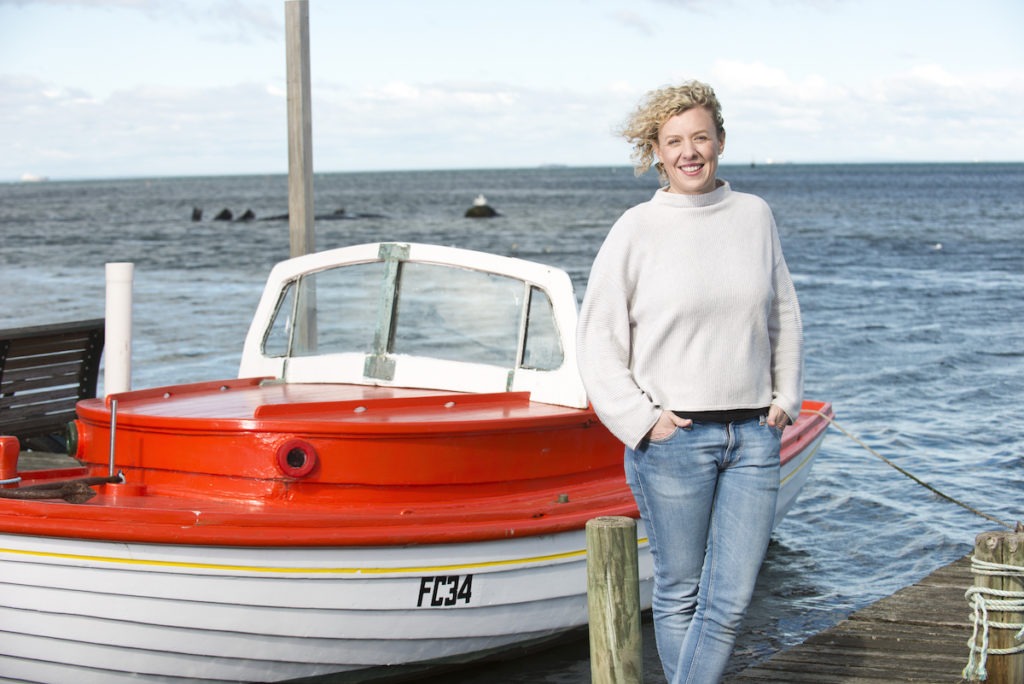The stories of women in the fishing industry are not traditionally heard, or even encouraged, a fact that Kirsten Abernethy has been working to change.
The fisheries social scientist listens to and records the experiences and stories of the men and women who live and work in fishing communities across Australia.
It’s work that applies to a number of different projects, driven by industry needs. And it’s happening in an industry she knew she was destined to spend her career in from the moment she stepped on her first professional fishing board 15 years ago.
“There is a romance about professional fishing – they are the last of the hunters. Fisheries also have great potential for a sustainable source of nutritious wild food,” she tells Women’s Agenda.
Abernethy says it was the combination of her views on sustainability and food security – alongside an interest in the history and culture of the industry – that drew her into the often-hidden world of fishing.
“I initially thought I might be an academic at a university or institution, but I grew frustrated at the metrics and lack of emphasis on research having real impact. So, I decided to go out on my own, and ‘design’ my career, and now I feel like I am able to work on projects which originate with the industry, and are collaborative, to try to affect change.”
Her work covers a range of topics: including the role of women in seafood, the health and wellbeing of fishing families, understanding social contributions of fisheries to communities and building greater community support for fisheries.
In 2017, she was named the VIC AgriFutures Rural Women’s Award Winner, which saw her using the Award to give a voice to women in the seafood industry and support them in achieving more leadership positions. She notes the seriously low numbers of women in decision-making or executive leadership positions, despite making up half of the worldwide seafood workforce chain.
Abernethy says the experience of winning the award has seen her develop new relationships over the past four years, particularly giving her access to meet and talk to women in the fishing industry across Victoria.
“I have also broadened my understanding through getting to know and learn from women outside of my small and often isolated fishing sector, particularly women in agriculture, as well as advocates for gender equality, who have really deepened my understanding of the issues and what needs to change to create an equal future.”
She says there are so many opportunities for women to be further respected, valued and included in the seafood industry.
“The seafood industry is incredibly diverse, from the boats and the fish farms, to research and resource management,” she says.
“I think there would need to be different approaches that are tailored to the challenges specific to each sector of the industry, and we are hoping these might be revealed by the research we are now doing. But in very general terms there needs to be a cultural shift in the industry, where women are respected, valued and included.
“Our research so far indicates that the culture is not always great for women in the seafood industry, which of course reflects upon our wider Australian society. I think in workplaces, the culture is often set from the top and this should be a target for change. But I also think there is power in the collective, and that building meaningful networks for women in the industry is a way to force change.”
The 2022 AgriFutures Rural Women’s Award Gala Dinner & National Announcement will be held at Parliament House, Canberra on Tuesday, 6 September 2022. Ticket sales open on Monday, 2 May 2022. See here for more information.

